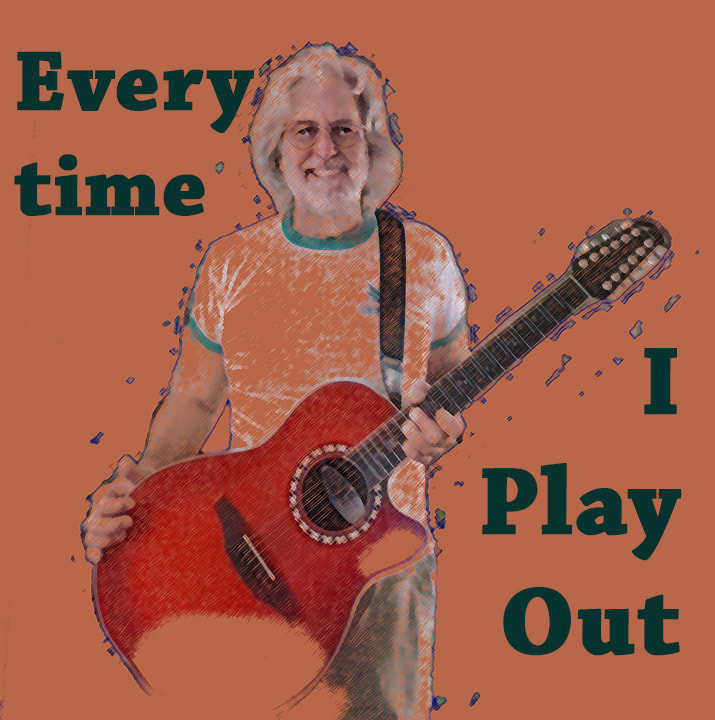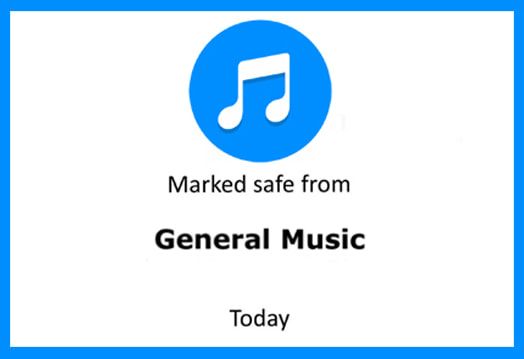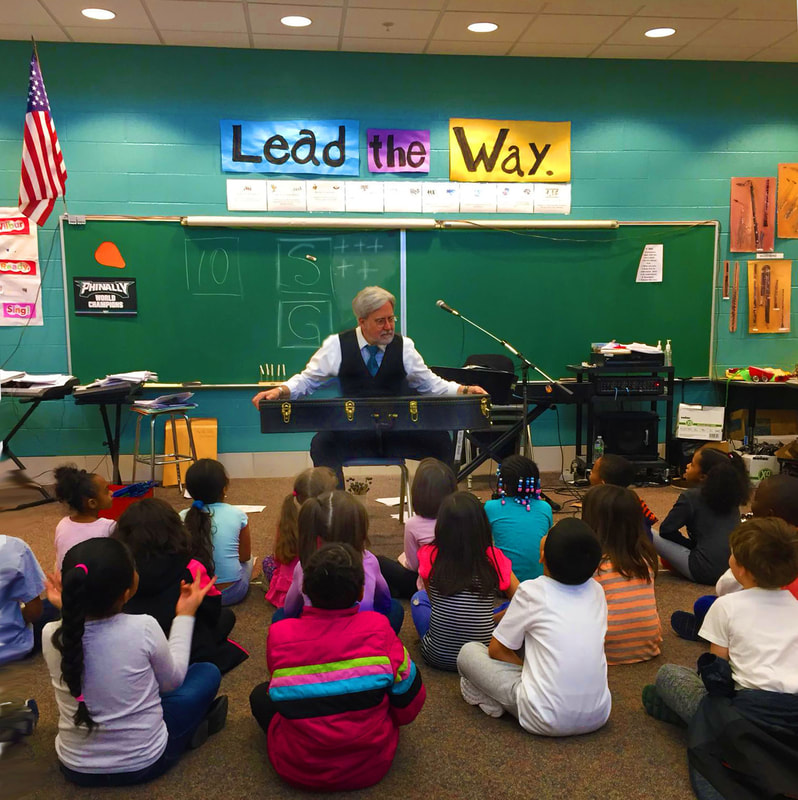I play gigs.
I set up my PA, guitar, electric piano, a mic, and more cords than I care to describe.
I enjoy interacting with the audience on a table-to-table basis on breaks, usually to find out what songs they want me to play but also just to say “hi” and “thanks for coming out.”
My experience is that people will tell me what they want to hear and are also more than willing to strike up a conversation.
Every time I play out, I inevitably have listeners say they wish they had learned how to play piano or guitar.
“Well, what did you learn in music class when you were a kid?”, I always ask.
And while you and I are in the moment, I’m asking you. What did you learn in music class when you were a little kid?
The responses I get from the people on gigs are sometimes strained, always comical with a subtext of light but deep-seated resentment.
“Not a whole hell of a lot.”
“How to color and listen to music.”
“How to sing songs I hated – and STILL hate.”
Occasionally someone will say something about a flute-a-phone, a musical, a performance, or a few months of band lessons. But I'm not getting a whole lot of five-star reviews out there when I talk to the masses at gigs.
After they answer my question and I tell them I am a music teacher, they admire the gigging rig and often end up asking me this: “Where did you learn how to play piano and guitar . . . and do all this stuff?”
I often laugh because the answer is not at a college.
Sure, I started dabbling with a piano and I was a kid but my parents didn't spring for lessons, primarily because we did not have the cash flow for that sort of thing.
When my mom wasn’t looking, I took lots of small electric appliances apart and put them back together. Once I learned how to solder and interchange parts. Yeah, some things blew up but I was never electrocuted. Shocked a few times – but never electrocuted.
I wanted to learn to play the piano that was at my grandmother’s house. Even though my mom was a child prodigy and was chauffeured to Philly to play at on the Horn & Hardart Children's Hour, she knew her limits as a mom and really wanted nothing to do with giving me piano lessons. I have a feeling that I was enough of a puzzle with adding another layer of enigma on top of the riddle I already was.
So yeah, I am a sum of my parts.
And one of the parts that was blissfully missing from my childhood was . . . I never had general music.
I set up my PA, guitar, electric piano, a mic, and more cords than I care to describe.
I enjoy interacting with the audience on a table-to-table basis on breaks, usually to find out what songs they want me to play but also just to say “hi” and “thanks for coming out.”
My experience is that people will tell me what they want to hear and are also more than willing to strike up a conversation.
Every time I play out, I inevitably have listeners say they wish they had learned how to play piano or guitar.
“Well, what did you learn in music class when you were a kid?”, I always ask.
And while you and I are in the moment, I’m asking you. What did you learn in music class when you were a little kid?
The responses I get from the people on gigs are sometimes strained, always comical with a subtext of light but deep-seated resentment.
“Not a whole hell of a lot.”
“How to color and listen to music.”
“How to sing songs I hated – and STILL hate.”
Occasionally someone will say something about a flute-a-phone, a musical, a performance, or a few months of band lessons. But I'm not getting a whole lot of five-star reviews out there when I talk to the masses at gigs.
After they answer my question and I tell them I am a music teacher, they admire the gigging rig and often end up asking me this: “Where did you learn how to play piano and guitar . . . and do all this stuff?”
I often laugh because the answer is not at a college.
Sure, I started dabbling with a piano and I was a kid but my parents didn't spring for lessons, primarily because we did not have the cash flow for that sort of thing.
When my mom wasn’t looking, I took lots of small electric appliances apart and put them back together. Once I learned how to solder and interchange parts. Yeah, some things blew up but I was never electrocuted. Shocked a few times – but never electrocuted.
I wanted to learn to play the piano that was at my grandmother’s house. Even though my mom was a child prodigy and was chauffeured to Philly to play at on the Horn & Hardart Children's Hour, she knew her limits as a mom and really wanted nothing to do with giving me piano lessons. I have a feeling that I was enough of a puzzle with adding another layer of enigma on top of the riddle I already was.
So yeah, I am a sum of my parts.
And one of the parts that was blissfully missing from my childhood was . . . I never had general music.
Yep.
I went to a parochial school for eight years and the closest I ever got to the Arts was singing hymns or a handful of songs, our “Poems and Pictures” book, and a weekly Friday afternoon coloring sheet in eighth grade.
My love of music from my earliest years didn’t include “kid music” or “school music”. Lots of church music, especially Gregorian chant.
My father was a DJ on the radio so I grew up with whatever he was playing.
From an early age, I learned how to make educational gold out of stuff others threw away.
In third grade, a cousin gave me a wooden recorder. I figured out the C diatonic scale in a few minutes and was able to play about a dozen simple songs that first day.
When I was about twelve, a perfect day was when I was allowed to go to visit my dad at work and explore the radio station. One day I found two huge garbage bins next to the clattering Associated Press tele-type machines that were filled with hundreds of LPs.
I asked my dad why the LPs were in the bin.
“Those are complimentary LPs sent by record labels to every radio station in hopes that we’ll play their disks. The stuff that doesn’t fit our play list gets thrown away in the bin.”
“So if they’re garbage, can I keep them?”
“Sure. By all means.”
Dad pulled out a Philadelphia Orchestra album and laughed, “Swing and sway with Eugene Or-man-day!”
And I discovered that I loved jazz and classical music. I poured over the 10-point-font liner notes, especially those written by George Avakian. Always astutely written, reading was like attending a lecture in music history.
So, yes.
I dodged the general music bullet in elementary school. My legitimate exposure to music education started in fourth grade with musicians who taught instrumental music on Saturday mornings at our diocesan music program.
These teachers didn’t treat us like kids as much as young musicians. The fun was always balanced with subtle lessons on taking responsibility, practicing, and thinking on our own.
There was always a stack of blank manuscript paper in the band room we were encouraged to use.
So that’s how it started. No one could have predicted that the kid who crudely wrote notes on manuscript paper would someday be scoring and recording soundtracks for TV shows.
If you’re teaching music in an elementary, junior high, or high school, that same kid is probably in your class right now. Can you guess who he or she is?
Treating my students just as my most influential teachers treated me, as young musicians, has been a constant thread through all my years of teaching.
We are all musicians; some of us are simply a few more miles “down the road” than some others. I’ve taught my students that no matter who we are, we treat all we meet on the road as a fellow musician with respect and share what we’ve learned.
So take a hard look today at that eight-year-old kid in your general music class.
Imagine someone running into them “down the road” in about thirty years.
When they’re asked “What the most important idea you kept from my music class?”, what will be the answer?
I went to a parochial school for eight years and the closest I ever got to the Arts was singing hymns or a handful of songs, our “Poems and Pictures” book, and a weekly Friday afternoon coloring sheet in eighth grade.
My love of music from my earliest years didn’t include “kid music” or “school music”. Lots of church music, especially Gregorian chant.
My father was a DJ on the radio so I grew up with whatever he was playing.
From an early age, I learned how to make educational gold out of stuff others threw away.
In third grade, a cousin gave me a wooden recorder. I figured out the C diatonic scale in a few minutes and was able to play about a dozen simple songs that first day.
When I was about twelve, a perfect day was when I was allowed to go to visit my dad at work and explore the radio station. One day I found two huge garbage bins next to the clattering Associated Press tele-type machines that were filled with hundreds of LPs.
I asked my dad why the LPs were in the bin.
“Those are complimentary LPs sent by record labels to every radio station in hopes that we’ll play their disks. The stuff that doesn’t fit our play list gets thrown away in the bin.”
“So if they’re garbage, can I keep them?”
“Sure. By all means.”
Dad pulled out a Philadelphia Orchestra album and laughed, “Swing and sway with Eugene Or-man-day!”
And I discovered that I loved jazz and classical music. I poured over the 10-point-font liner notes, especially those written by George Avakian. Always astutely written, reading was like attending a lecture in music history.
So, yes.
I dodged the general music bullet in elementary school. My legitimate exposure to music education started in fourth grade with musicians who taught instrumental music on Saturday mornings at our diocesan music program.
These teachers didn’t treat us like kids as much as young musicians. The fun was always balanced with subtle lessons on taking responsibility, practicing, and thinking on our own.
There was always a stack of blank manuscript paper in the band room we were encouraged to use.
So that’s how it started. No one could have predicted that the kid who crudely wrote notes on manuscript paper would someday be scoring and recording soundtracks for TV shows.
If you’re teaching music in an elementary, junior high, or high school, that same kid is probably in your class right now. Can you guess who he or she is?
Treating my students just as my most influential teachers treated me, as young musicians, has been a constant thread through all my years of teaching.
We are all musicians; some of us are simply a few more miles “down the road” than some others. I’ve taught my students that no matter who we are, we treat all we meet on the road as a fellow musician with respect and share what we’ve learned.
So take a hard look today at that eight-year-old kid in your general music class.
Imagine someone running into them “down the road” in about thirty years.
When they’re asked “What the most important idea you kept from my music class?”, what will be the answer?



 RSS Feed
RSS Feed